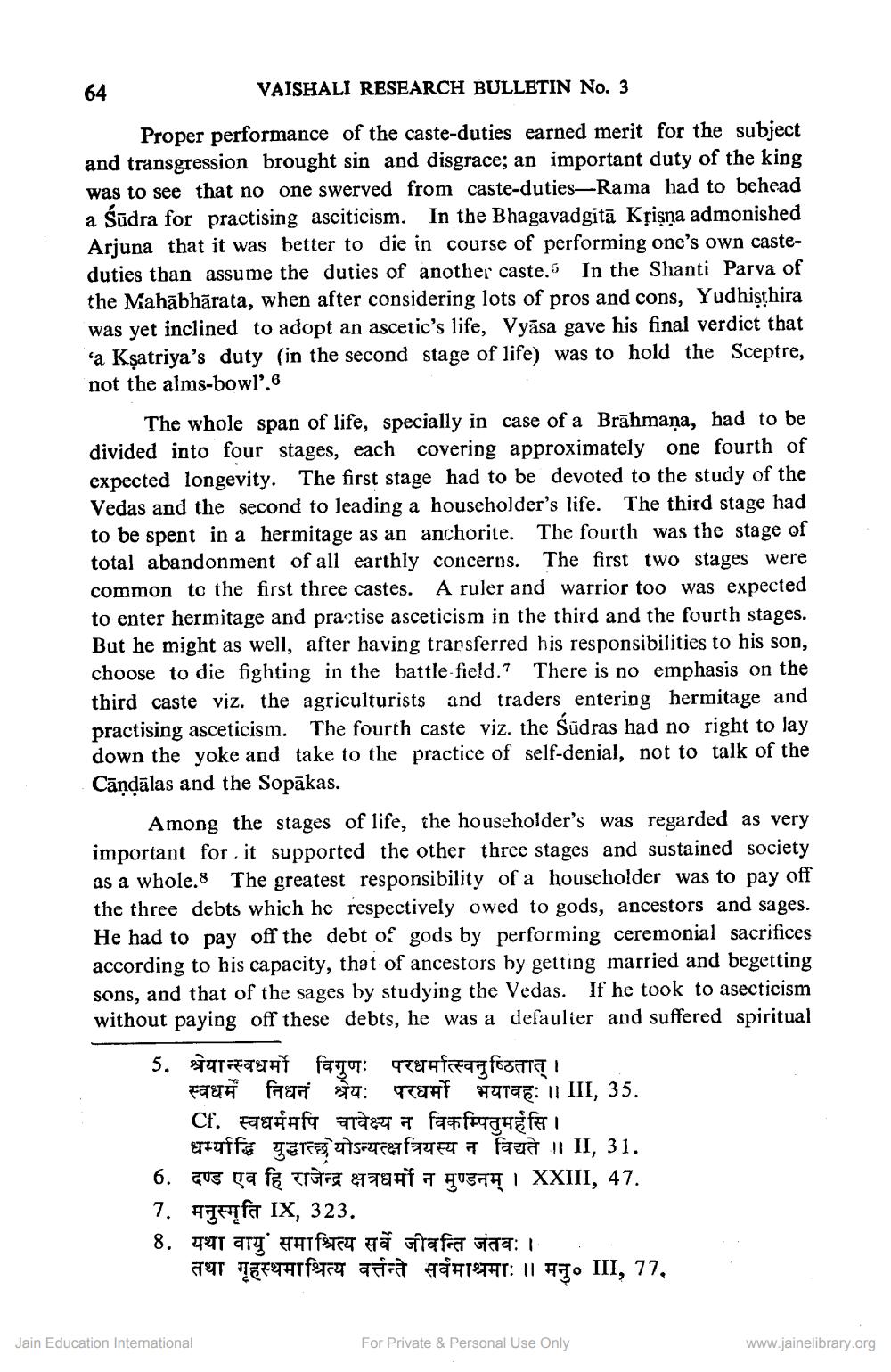________________
VAISHALI RESEARCH BULLETIN No. 3
Proper performance of the caste-duties earned merit for the subject and transgression brought sin and disgrace; an important duty of the king was to see that no one swerved from caste-duties—Rama had to behead a Sūdra for practising asciticism. In the Bhagavadgitā Krisna admonished Arjuna that it was better to die in course of performing one's own casteduties than assume the duties of another caste. In the Shanti Parva of the Mahābhārata, when after considering lots of pros and cons, Yudhisthira was yet inclined to adopt an ascetic's life, Vyāsa gave his final verdict that 'a Ksatriya's duty (in the second stage of life) was to hold the Sceptre, not the alms-bowl'.6
The whole span of life, specially in case of a Brāhmaṇa, had to be divided into four stages, each covering approximately one fourth of expected longevity. The first stage had to be devoted to the study of the Vedas and the second to leading a householder's life. The third stage had to be spent in a hermitage as an anchorite. The fourth was the stage of total abandonment of all earthly concerns. The first two stages were common to the first three castes. A ruler and warrior too was expected to enter hermitage and practise asceticism in the third and the fourth stages. But he might as well, after having transferred his responsibilities to his son, choose to die fighting in the battle-field.? There is no emphasis on the third caste viz. the agriculturists and traders entering hermitage and practising asceticism. The fourth caste viz. the Sūdras had no right to lay down the yoke and take to the practice of self-denial, not to talk of the Cāņdālas and the Sopākas.
Among the stages of life, the householder's was regarded as very important for it supported the other three stages and sustained society as a whole. 8 The greatest responsibility of a householder was to pay of the three debts which he respectively owed to gods, ancestors and sages. He had to pay off the debt of gods by performing ceremonial sacrifices according to his capacity, that of ancestors hy getting married and begetting sons, and that of the sages by studying the Vedas. If he took to asecticism without paying off these debts, he was a defaulter and suffered spiritual
5. THT fart fraaf ATTI
Fatü fant su: TahfTTE: 11 III, 35. Cf. स्वधर्ममपि चावेक्ष्य न विकम्पितुमर्हसि ।
धाद्धि यूद्धात्छ योऽन्यत्क्षत्रियस्य न विद्यते ॥ II. 31. 6. que ga fa Tres THT AT QUE | XXIII, 47. 7. Hafa IX, 323. 8. यथा वायुसमाश्रित्य सर्वे जीवन्ति जतवः ।
TT TEFATTTT auta SATSTAT: 11 ATO III, 77,
Jain Education International
For Private & Personal Use Only
www.jainelibrary.org




